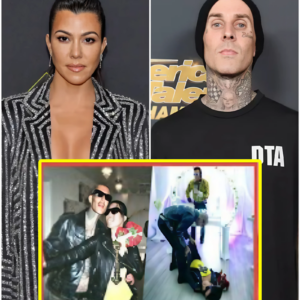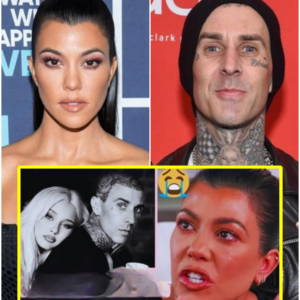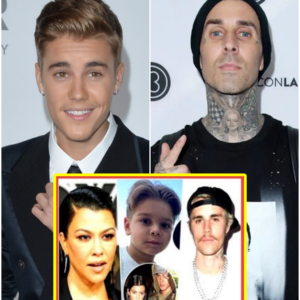The Tumultuous Relationship of Jay-Z, Dame Dash, and Kanye West: A Detailed Breakdown
The saga of Jay-Z, Dame Dash, and Kanye West is one of loyalty, betrayal, and business acumen, encapsulating the dramatic rise and fall of Roc-A-Fella Records. Formed in 1995 by Jay-Z, Dame Dash, and Kareem “Biggs” Burke, Roc-A-Fella Records began as an independent label after major labels repeatedly rejected Jay-Z. The trio’s vision and perseverance paid off when Jay-Z’s debut album, Reasonable Doubt, dropped in 1996, marking the label’s first major success.

Roc-A-Fella Records quickly rose to prominence, signing a slew of talented artists such as Beanie Sigel, Freeway, and Cam’ron. The label’s success was not just due to its roster but also its innovative approach, bringing in fresh producers like Kanye West and Just Blaze. Kanye, in particular, played a crucial role in shaping the label’s sound, contributing significantly to Jay-Z’s critically acclaimed album, The Blueprint.
However, by the early 2000s, tension between Jay-Z and Dame Dash began to surface. The rift became evident in 2002 when Dame attempted to promote Cam’ron to Vice President of Roc-A-Fella without consulting Jay-Z, leading to significant friction. Jay-Z’s growing dissatisfaction with Dame’s media antics and business decisions further strained their relationship. Despite public denials of any discord, the cracks were becoming too large to ignore.
The breaking point came in 2004 when Jay-Z accepted the role of President and CEO of Def Jam Recordings. As part of this deal, Def Jam acquired the remaining 50% of Roc-A-Fella, effectively ending Jay-Z, Dame, and Biggs’ partnership. This move shocked Dame and Biggs, who felt betrayed, particularly since Jay-Z allegedly leveraged Roc-A-Fella’s value to secure his position at Def Jam while demanding sole ownership of his Reasonable Doubt masters.
In the aftermath, many Roc-A-Fella artists had to choose sides. Kanye West, who had a deep loyalty to Dame Dash, openly sided with him. Kanye credited Dame with having the vision and audacity to sign him when others doubted his rapping potential. Despite Jay-Z’s significant influence on his career, Kanye always acknowledged Dame’s crucial role in his early success.
Dame Dash’s discontent with Jay-Z’s actions extended beyond business. He was particularly hurt by Jay-Z’s association with R. Kelly, especially after the singer’s controversial history with underage girls, including Aaliyah, who was Dame’s girlfriend before her tragic death in 2001. Dame viewed Jay-Z’s collaboration with R. Kelly as a personal betrayal, adding another layer of animosity between them.
Further complicating matters, Dame accused Jay-Z of aligning himself with individuals like Lyor Cohen, whom Dame labeled a “culture vulture.” According to Dame, Cohen and executives like him exploited black culture for profit while fostering division among black industry leaders. This “divide and conquer” strategy, as Dame described it, prevented black moguls from uniting to uplift their communities.
Despite the dissolution of Roc-A-Fella Records, the legacy of Jay-Z, Dame Dash, and Kanye West endures. Jay-Z has cemented his status as a business mogul, while Dame has continued to champion independent ventures, and Kanye has carved out his own path as an influential artist and entrepreneur. Their story is a testament to the complex interplay of friendship, ambition, and betrayal in the pursuit of success.
News
(B) Travis Barker MISSED when Kourtney Kardashian returned home drunk after Kardashians party. (VIDEO)…
Courtney Kardashian made headlines just seven weeks after giving birth when she decided to attend the annual Kardashian Jenner Christmas party sans pants. Despite recently welcoming her fourth child, Rocky, with boyfriend Travis Barker, Courtney seemed anything but tired as…
(B) Kourtney Kardashian Shocking Revelation on Why Her Relationship with Travis Barker Ended. (VIDEO)…
In the public eye, Travis Barker and Courtney Kardashian’s relationship was once perceived as an unbreakable union, filled with passion and devotion. However, recent revelations paint a vastly different picture, revealing the underlying turmoil that ultimately led to its demise….
(B) Kourtney Kardashian SECRET XTAPE With Minor Justin Bieber REVIEWED by The Feds. (VIDEO)
The recent discovery of a video purportedly featuring Courtney Kardashian and Justin Bieber has ignited a firestorm within the entertainment industry, prompting intense speculation about its potential ramifications. This revelation, coupled with reports of a raid on Diddy’s home, has…
(B) EXTREMELY SHOCKING: Kris Jenner Lied About DNA Test To Khloe Kardashian As O.J. Simpson Could Be Her Father. (VIDEO)..
In a moment etched into the memories of internet users, Chris Jenner once orchestrated a dramatic DNA test to dispel rumors surrounding Khloe Kardashian’s paternity. Speculations swirled, stemming from Jenner’s revelations in her memoir “Chris Jenner and All Things Kardashian,”…
(B) Kourtney Kardashian finally shows proof her son Reign Disick is actually Justin Bieber’s son. (VIDEO)..
Courtney Kardashian recently embarked on an exciting escapade to Australia and New Zealand with her husband, Travis Barker, for his tour. However, it was their youngest son, Rain, who stole the spotlight during their adventures. With his mischievous antics and…
(B) NEWS HOT; Travis Barker Found Evidence of Kourtney Shared Baby With Justin Bieber (video)…
The rumor mill surrounding Justin Bieber and the Kardashian family has been churning for quite some time, igniting speculation about his connections with various members. While the details are murky and often sensationalized, let’s delve into the complexities of these…
End of content
No more pages to load











